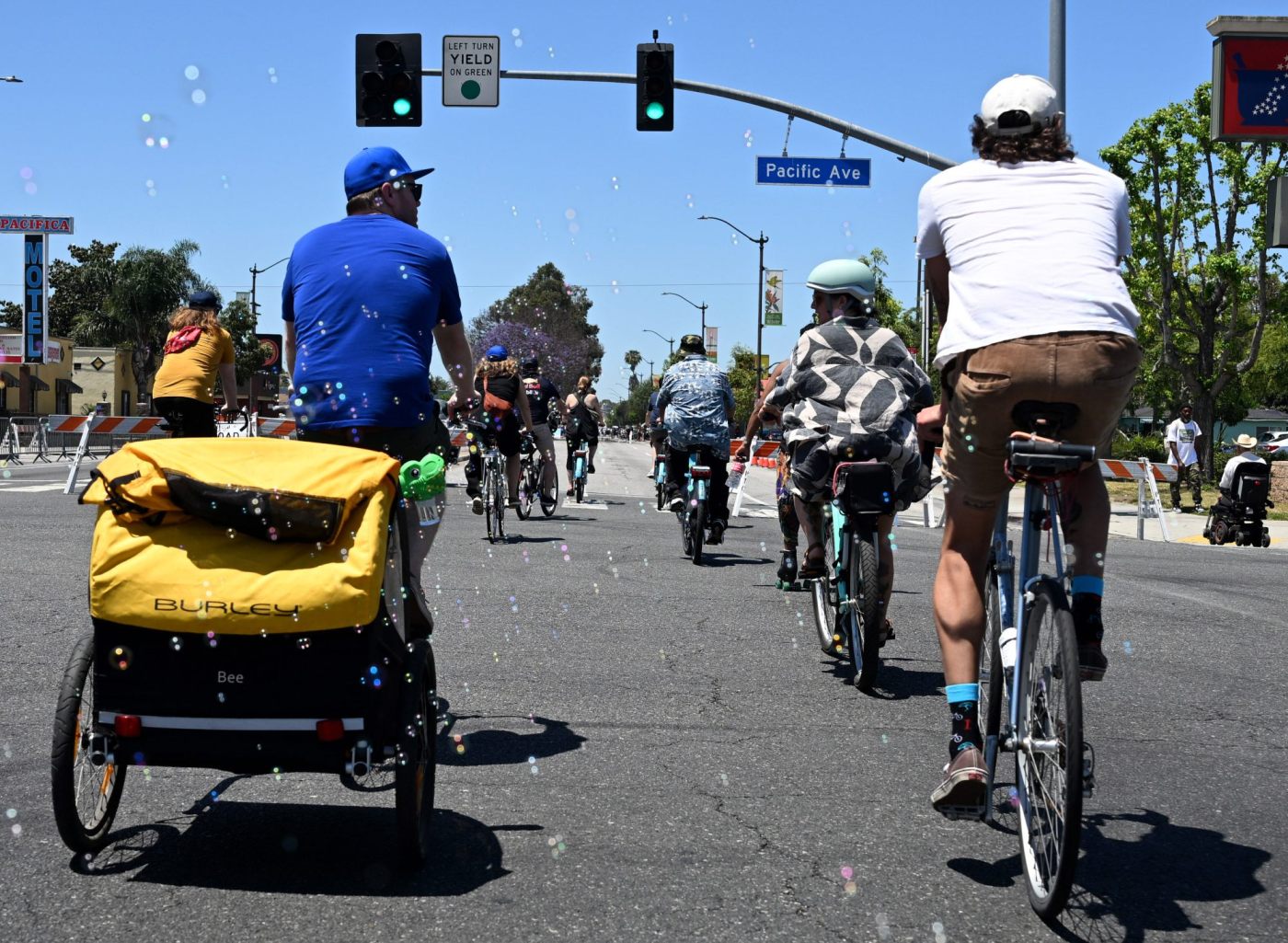Top Stories
LA Metro Announces $10M Funding for Open Streets During World Cup and Olympics

URGENT UPDATE: LA Metro has just announced a groundbreaking plan to spend $10 million on “open streets” events in Los Angeles County, strategically scheduled to coincide with the FIFA World Cup in July 2026 and the Olympic Games in July 2028. This unprecedented initiative aims to close streets to cars, allowing pedestrians and cyclists to take over major roadways, but it raises significant concerns for the community.
Under the proposal, 29 open street events will be held during these two major international sporting events. However, LA Metro’s focus on these occasions means residents may face a staggering 34 months without regular open street events, starting January 2025. Critics argue this lack of programming could hurt community engagement and public transit awareness.
Wesley Reutimann, co-founder of Active SGV, expressed his concerns: “Should it come at the expense of open streets programs for three years?” Such events, including the popular CicLAvia, have become integral to Los Angeles culture, providing free, accessible activities for thousands.
LA Metro has been a dedicated supporter of these events since 2013, investing nearly $26 million in over 84 initiatives. Past events have attracted significant crowds, such as the recent Arroyofest II, which drew over 50,000 attendees to a six-mile stretch of the Arroyo Seco Parkway.
While the upcoming open street events aim to celebrate the World Cup and Olympics, they also include fanfest activities that will not fully eliminate automobile traffic. Metro spokesperson Melissa Colman stated that these initiatives are designed to enhance the celebration atmosphere for those unable to attend the events in person.
The proposed events span various locations, including El Pueblo de Los Angeles, City of Santa Monica, and Long Beach, with funding estimates ranging from $100,000 to $500,000 per event. However, the decision to limit open street programming to just two months over a three-year span has alarmed many advocates.
Reutimann highlighted the importance of frequent open street events: “They connect people to public transit and promote car-free experiences.” He criticized the decision to focus on limited events during the World Cup and Olympics, emphasizing the need for continuous programming to maintain community interest and participation.
The first discussion regarding these new open streets and fanfest events will occur on November 19, 2024, at LA Metro’s Planning and Programming Committee meeting. Reutimann and other advocates are urging the committee to reconsider the funding approach to include more open street initiatives outside the exclusive timeframe of the major sporting events.
With the stakes incredibly high for both the Olympics and World Cup, the community anxiously awaits how these changes will unfold. Will LA Metro’s strategy effectively promote active transit during these global events, or will it inadvertently stifle public engagement in the years leading up to them? The answers are imminent as discussions progress.
-

 Science3 weeks ago
Science3 weeks agoOhio State Study Uncovers Brain Connectivity and Function Links
-

 Politics3 weeks ago
Politics3 weeks agoHamas Chief Stresses Disarmament Tied to Occupation’s End
-

 Entertainment3 weeks ago
Entertainment3 weeks agoMegan Thee Stallion Exposes Alleged Online Attack by Bots
-

 Science1 month ago
Science1 month agoResearchers Challenge 200-Year-Old Physics Principle with Atomic Engines
-

 Entertainment3 weeks ago
Entertainment3 weeks agoPaloma Elsesser Shines at LA Event with Iconic Slicked-Back Bun
-

 World3 weeks ago
World3 weeks agoFDA Unveils Plan to Cut Drug Prices and Boost Biosimilars
-

 Business3 weeks ago
Business3 weeks agoMotley Fool Wealth Management Reduces Medtronic Holdings by 14.7%
-

 Top Stories3 weeks ago
Top Stories3 weeks agoFederal Agents Detain Driver in Addison; Protests Erupt Immediately
-

 Entertainment3 weeks ago
Entertainment3 weeks agoBeloved Artist and Community Leader Gloria Rosencrants Passes Away
-

 Politics1 month ago
Politics1 month agoNHP Foundation Secures Land for 158 Affordable Apartments in Denver
-

 Top Stories3 weeks ago
Top Stories3 weeks agoOrioles Hire Craig Albernaz as New Manager Amid Rebuild
-

 Business3 weeks ago
Business3 weeks agoHome Depot Slashes Prices on Halloween Favorites Up to 75%








